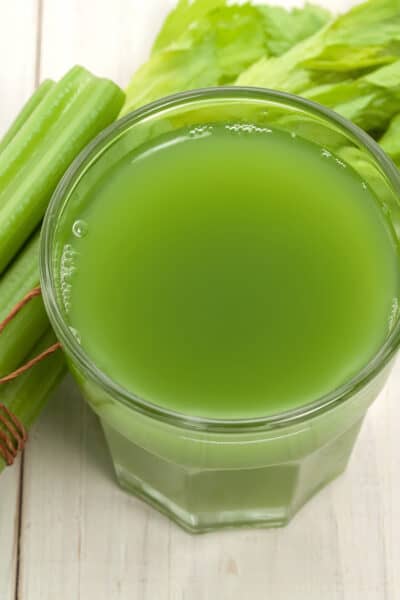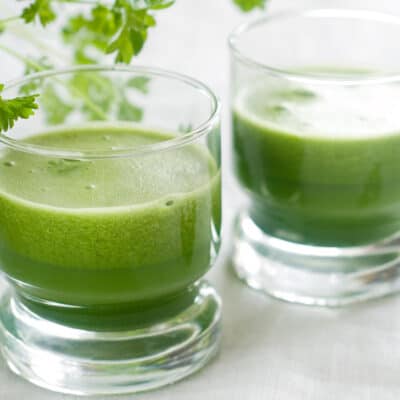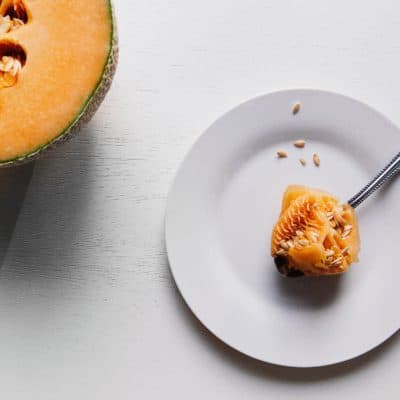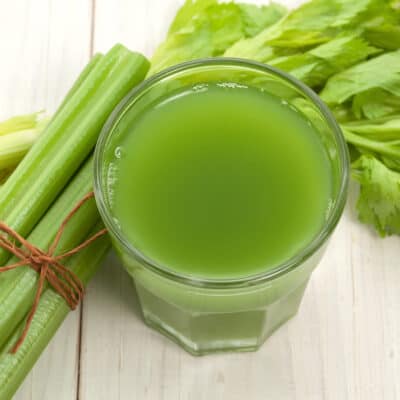Why do you get migraines? What can you do for relief besides medication?
Migraines and headaches create desperate, frustrating situations. There’s never a “good time” to get a headache or migraine – all aspects of your life are suddenly crumble in the face of your head seemingly splitting open. What causes a migraine, and how can you relieve the tension naturally?
The Real Root of a Migraine
To treat a migraine naturally, we need to understand the real causes of migraines. This condition is not yet fully understood by the medical field, which is why the first line of treatment is typically medicine..
Migraines are a given symptom for certain medical conditions. If you are suddenly experiencing migraines with no history of them before, be sure to check with your doctor or health practitioner for the following issues:
- Head injury or concussion
- Meningitis
- Stroke
- Transient ischemic attack (TIA)
- Brain aneurysm
- Brain tumor
- Brain cyst or microcyst
- Impeded cervical nerves
If medical testing rules these causes out, the rest of this blog post is for you.
If no doctor can explain why you get headaches or migraines, this blog post is for you.
If nothing works except medication to lessen your headache or migraines, this blog post is for you.
Let’s get to it.
There can be several different real roots of a migraine, and many of them can be unexpected. Often, a migraine or headache results from a combination of more than one of these roots at play. I’ll give a brief overview of each, but if you’re wanting more in depth information, I highly recommend reading Anthony William’s book Medical Medium: Secrets Behind Chronic and Mystery Illness and How to Finally Heal. It contains a chapter specifically about migraines, and other chapters give more detailed explanations of the causes. You can also check out my online course Radical Healing: A Step-By-Step Guide to Reclaiming Your Vibrancy, in which I detail the root causes of many health conditions and give a detailed protocol to overcome chronic illness.
INFLAMED NERVES AND/OR NERVOUS SYSTEM
Your nerves and nervous system are intertwined with your brain and its functions. A migraine can be triggered by an inflamed nervous system, and/or specifically inflamed vagus, phrenic, and/or trigeminal nerves. Inflamed nerves disrupt your brain’s functioning, causing a migraine.
What can inflame your nerves?
- A viral load in the body, specifically Epstein-Barr Virus or a strain of the shingles virus.
- Chronic sinus infections, caused by strep bacteria in the linings of your sinuses, which is difficult to remove by surgery.
- Poor gut health. A poorly functioning digestive system can cause ammonia gas to leak out, inflaming nerves.
- Stress – especially chronic stress, which continually pumps adrenaline throughout the body and creates a hypertensive reaction that can tighten the trigeminal nerves.
- Constipation. Compressed fecal matter can put pressure on the nerves that traverse to the brain.
MICRO-TRANSIENT ISCHEMIC ATTACK
This is a transient ischemic attack, but on a much smaller scale. A TIA creates a smaller brain injury than a stroke – a subtle enough attack that you might not even be aware when it happens, but with far-reaching consequences on your health.
IMBALANCES IN BRAIN CHEMISTRY
Your brain (and body) is a delicate balance of fluids, chemicals, nutrients, and more that all work together to keep your body functioning properly. When your brain chemistry is off-kilter – especially in combination with other triggers, a migraine can occur.
What causes brain chemistry to become imbalanced?
- Not getting enough sleep.
- Electrolyte deficiency, usually caused by dehydration. Electrolytes keep the electrical impulses in the brain and body functioning correctly, and not enough electrolytes means low electrical activity, which can trigger a migraine.
HEAVY METALS & TOXINS
Heavy metals, which I talk about in this blog post and in Radical Healing, as well as other environmental toxins, can settle into your brain and other organs. This can cause a variety of health conditions, such as anxiety, depression, fatigue, ADHD, other neurological conditions, and more – including migraines. Heavy metals can also compound symptoms caused by viruses or other foreign pathogens. Continually detoxing your body and brain of heavy metals can eventually halt migraines from occurring.
MENSTRUAL CYCLE
Ladies, have you noticed that your migraine (or even sickness) can oh-so-conveniently arrive right around the time of your menses? Menstruation demands a significant shift of your body’s functioning and resources. At this time, a woman’s immune system is lowered because it shifts toward supporting the reproductive system. If your body has already been defending itself against other migraine triggers and suddenly lowers its defenses, it’s an open invitation for a migraine to take over. (Read more about balancing hormones here and re-regulating an unusual monthly cycle here.)
FOOD TRIGGERS
Getting a migraine from certain foods in your diet is typically a trigger in combination with another of the abovementioned triggers. If foods contribute to causing a migraine, it is likely that these foods are triggering multiple issues that are underlying your migraines. I recommend omitting or minimizing your intake of the following:
- Dairy – causes mucus and puts pressure on the lymphatic system and central nervous system
- Eggs – can cause an increase in ammonia, which can irritate the central nervous system (read more on eggs here)
- Gluten – weakens the immune system and increases histamines, which can cause migraines
- Animal meat – in a poorly-functioning digestive system, meat can produce ammonia, which irritates the central nervous system
- Fermented foods – lower the pH in your intestinal tract and make your body acidic, triggering migraines
- Salt – too much of the wrong kind of salt (i.e. table salt, salty processed food, etc) can cause the electrolytes in the body to become unbalanced. (Natural sources of sodium such as dulse or celery will not unbalance the body – in fact, they will bring electrolytes into balance.)
- Oils – canola, corn, cottonseed, and palm oil cause inflammation
- Additives (such as MSG, aspartame, artificial food dyes, etc.) – neurotoxins that trigger migraines
- Alcohol – extremely dehydrating; an imbalance in the body’s fluids can trigger migraines
- Chocolate – overstimulates the central nervous system
- Note: Some people feel that chocolate or caffeine helps their migraines. This is because the caffeine instructs the adrenals to pump out more adrenaline, which can act as a temporary substitute to help reduce inflammation that can cause migraines. However, over time that caffeine will have other poor consequences for your health, and is not a sustainable remedy for migraines.
- Sugar – more specifically, eating refined, processed sugar and then the body experiencing withdrawal as it tries to eliminate it. Please note that sugar from fruit will not cause this reaction in the body, and in fact the body needs this kind of sugar to heal any ailment.
ALLERGIC REACTIONS
Your body creates histamine to defend itself against something that you are or may be allergic to. If you encounter something that could potentially be dangerous, your body may overcompensate and create too much histamine, which could end up creating a migraine. This reaction can happen immediately after exposure or days afterwards. If you think this could be the case for you, consider what you could have eaten or come into contact with that could cause an allergic reaction. Food? Drink? Air freshener? Laundry detergent? Pesticides sprayed on your neighbor’s lawn? Chemicals can be extremely irritating to the body. Try avoiding that thing as much as possible and see if your migraines improve.
It is important to note that whole plant foods will not cause an allergic reaction. “But I get so sick from eating pineapple!” someone may say. Although you may appear to be allergic to a certain fruit or vegetable, we must look deeper. It is very possible that the toxins in your system are reacting with those foods. In this case, it is important to work with a practitioner to rid the body of these toxins. Also, chewing food thoroughly will reduce the chances that undigested particles are irritating the digestive system and causing an allergy-like reaction. Read more about allergies in this post.
How To Relieve A Migraine
The following is a gathering of natural migraine remedies from my studies in the past ten years, as well as what has worked in my experience with clients during that time. It is my hope that they bring you relief!
HYDRATION
Dehydration is a common cause of headaches – and you would be surprised at how many people go about their day while chronically dehydrated. Not having enough water and/or electrolytes in the body decreases functioning and irritates the nerves, among many other effects. I recommend drinking at minimum half your body weight in ounces per day (ex: 200lbs means drinking 100 ounces). If you are having a headache from dehydration, you will need to replenish your body with much more than that amount, and ideally with high-quality electrolytes (such as coconut water, celery juice, cucumber juice, etc.) and not with sports drinks. I recommend getting in a lot of minerals in your hydration to help alleviate a migraine – see some of my favorite hydration hacks and recipes here.
STRESS-RELIEVING HEALTHY DRINK
Methods for relieving stress are well-researched and easy to find. However, outside of stress management, also take a look at the physical body. While heavily emotional and mental, stress is also very physical and can have a depleting effect on your body’s nourishment. To immediately nourish your body in a time of stress, blend a banana into a cup of pineapple juice with a little nut or seed milk and 1-2 tbsp of barley grass juice powder. Barley grass juice powder is known to relieve migraines, and is packed full of nutrients, vitamins, minerals, and protein.
PEPPERMINT
Peppermint stimulates blood circulation, helping reduce pain and inflammation. Try putting a drop of peppermint essential oil* on your finger and putting your finger under the tongue. You can also drink peppermint tea and sweeten with honey. (*You can use the coupon code amberbodilyhealth at checkout for a discount.)
TEAS
Herbal teas steeped in hot water are a traditional and effective way to lessen a migraine and relieve pain. Aside from peppermint tea, chamomile, thyme, and ginger tea can also help headaches and migraines. Valerian tea is a sedative and relieves pain. Feverfew tea is also a traditional migraine relief herb proven by research to be effective by calming blood vessels and decrease tension in the cardiovascular system, which can cause migraines.
HOT BATH
An epsom salt bath will soothe inflamed or irritated nerves by supplying more magnesium into your system. For a severe migraine, you can soak in a very hot bath or whirlpool while simultaneously applying cold packs to the neck and head. You can also add ginger to the bath to help reduce inflammation. Hot baths will dislodge toxins and increase circulation and lymphatic flow, so be sure to drink extra fluids to flush them out. Can’t get in a bath? Try soaking just your feet in a basin or large bowl with 1/2 cup of epsom salt and 2 tablespoons of baking soda dissolved into warm water.
MASSAGE
Overall tension in the body (perhaps a result of stress or other issues in the body) can contribute to a migraine. Having a good overall body massage can work to relieve this tension and put more energy into muscles that are strained. St. John’s Wort oil* is a great oil to help relieve nerve tension. You can also massage with Dr. Christopher’s Cayenne Heat Ointment on areas of the body to relieve tension and soreness. (*You can use the coupon code amberbodilyhealth at checkout for a discount.)
OUTDOOR EXERCISE
Research and science are now documenting the many health benefits of being outside, including reducing inflammation and regulating the nervous system, which contribute to headaches and migraines. Studies show that exercising while outside makes the effects of nature even more powerful. Regular exercise prevents toxins from building up in your body and causing headaches. Being outside and moving your body (either gently or vigorously) can help prevent and clear up headaches.
Relief Is Around the Corner
Migraines and headaches can be such debilitating conditions, and you might feel that your life is ruled by your migraines. You might find yourself planning around your migraines or refraining from doing certain activities you enjoy to avoid a trigger. My hope is that these remedies, along with generally cleaning out the body and nourishing it well, give you relief and allow you to step into the joy in your life!
Ignite the Healer within,
Amber Bodily
P.S. If you want to see my best tips for migraine relief – plus 50 other effective natural remedies – make sure you’re subscribed here to get the latest news on my upcoming online course: The Natural Medicine Cabinet: Your Guide To Powerful Remedies for Common Ailments.









